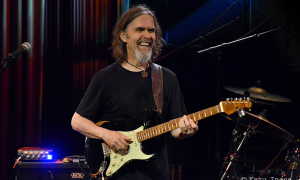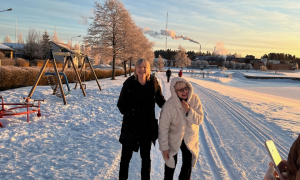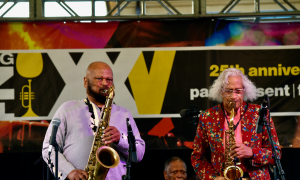Home » Jazz Articles » SoCal Jazz » John Patitucci: The Quintessence of Acoustic and Electric
John Patitucci: The Quintessence of Acoustic and Electric

Courtesy Gus Cantavero
The rock bassist that influenced me the most was Paul McCartney. We wore out Abbey Road. But what was even more powerful were the funk grooves of James Jamerson, Willie Weeks, and Chuck Rainey.
—John Patitucci
John Patitucci
bassb.1959
Fast forwarding to the present, Patitucci is now fifty nine years old and considered by many to be the most talented bassist on the planet. Particularly, when you consider he has mastered both the electric and acoustic on a virtuosic level.
A conversation with the consummate professional showcased his words and stories to be as strong as the voice he shares on his instruments.
John Patitucci: Jimmie we did it!
All About Jazz: Hi John, yes we persevered and finally connected. Getting late for you on the east coast. Long day?
JP: Long day in the studio, but it has been really exciting the past couple of days. We recorded some new curriculum to be released later in the year.
AAJ: That's cool. I knew you had been spending time in the studio working on something.
JP: Well, what's cool is that this is all recorded in context. I wrote several tunes that will help one to be able to focus on a certain stylistic thing on the bass. I do it in context, with a group. On the first day I hired

Adam Cruz
drumsb.1970

Adam Rogers
guitarb.1965

Bud Powell
piano1924 - 1966

Chris Potter
saxophone, tenorb.1971

Nate Smith
drumsb.1974
AAJ: Nice group. What were you working on today?
JP: We did kind of a funky little tune a la

The Meters
band / ensemble / orchestraAAJ: That's a very practical approach that makes a lot of sense. It's like learning to drive in wide open spaces with no one around. It's going to be way different when you are on the freeway in heavy traffic.
JP: Yes. It has also been a challenge to bring forth all that I have learned. It's a challenging thing to do, as a teacher, to keep students engaged and so that they don't get discouraged. I instill those very principles that are the same as when you get to a bigger stage where there is more advanced improvisation and more responsibility on the rhythms. Some guys are very good around the neck and have some instrumentation on the bass. They know the scales and arpeggios, but can't play a gig yet. They don't know how to groove or to come up with a bass line that can be replayed in a two or four bar pattern. How to lock in with the drums. Its really a tall order when I try to take everything I have learned over several decades and try to jump start a young musician into this whole world.
AAJ: Also top of mind for me is the documentary on your life, Back in Brooklyn (August Sky Films, 2016), which I frankly saw only recently. The piece is very well done, not at all dry like some documentaries. For me, that was the case because although there was of course a lot about your music, it was personal with a focus on you and your family. Was that your intent going into the project, or was someone else driving the wheel?
JP: Yes, I suppose there was. My ex brother-in-law, who used to be married to one of my sisters, had this idea to do a documentary on me. He has a theater background and really wanted to do it. I wasn't so sure about the idea. They do biographies on guys like

Miles Davis
trumpet1926 - 1991

Wayne Shorter
saxophone1933 - 2023
AAJ: Maybe asking yourself, "Am I that old already?"(with a laugh)
JP: (laughing) Yeah, something like that. What I really wanted to do at the time was a new record. So my brother-in-law offers to front me the money to make a new record if I will let him do the documentary. I said, "Deal."
AAJ: For sure. Immediate funding is not always that easy to get. No way you turn that down.
JP: Yeah, and it worked out real well. The record, Brooklyn (Three Faces Records, 2016), did very well and I was able to pay him back pretty quickly. I wanted to get a big semi-hollow electric bass built that would give me that big warm sound so that I could play walking bass and with those open ended prettier high end notes for soloing. I had it made by hand and it is such a beautiful instrument. For sometime I had the idea and the compositions for the two electric guitars concept. We did it with

Brian Blade
drumsb.1970
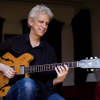
Steve Cardenas
guitarAAJ: There's a lot of depth and intelligent interplay going on with that quartet. You don't see the two guitarist concept too often. It's a bit more unique. What led to you having that alignment?
JP: Well, I have played with Adam for quite some time now. He is an absolute cyborg on the guitar. A completely amazing guitarist that can play anything from jazz to classical with equal aplomb. From

Jimi Hendrix
guitar, electric1942 - 1970
AAJ: Well, when you then factor in the weight of your playing, it's amazing that you guys aren't running into each other.
JP: Your'e right, Jimmie. That's exactly the thing. Then you have Brian orchestrating on drums. He creates spaces and plays with such intensity. He can play softly and keep the intensity. Brian has a wide dynamic that can take you over the mountain tops, but then come down in a whisper in an instant.
AAJ: It's certainly a quartet of equal measure that shines both collectively and individually. In the documentary, we quickly learn that you come from a typical large Italian family. Boisterous, with a brother and three sisters— playing ball out in the street—running inside when the pasta was ready—lots of music being heard around the house. A family life that is very relatable. Playing a musical instrument, however, was new to the mix. Not something that ran in the family. You and your older brother Tom heard lots of music, but what was the spark that interested you in playing it?
JP: My grandfather on my mother's side played a little piano by ear. His father had a speakeasy during prohibition and my grandfather heard some piano players he liked. He liked

Earl Hines
piano1903 - 1983

Eubie Blake
piano1887 - 1983
AAJ: Wow, that's incredible that he did all those things.
JP: Yes, he was a very interesting man. On top of all of that, he worked for a time on the city streets with a jackhammer. It was during that time he came across the

Wes Montgomery
guitar1923 - 1968

Art Blakey
drums1919 - 1990
AAJ: Ah yes, the famous box, mentioned in the documentary.
JP Yeah, he came across this box of records that had been put out to the curb for trash pickup. We concluded later that we were the beneficiaries of a domestic quarrel. These weren't the kind of records that you just throw away. Nobody would throw away these records (laughing).
AAJ You wouldn't think so, other than an angry spouse (laughing). But I love the story of the box.
JP: My brother, Tom, and I just marveled at these records. It really is what set things in motion for us to start playing. We didn't even understand what we were listening to. But we knew there was something there to be discovered. Wes Montgomery started to draw us in with his soulful blues and swing. That real earthy sound of his. That's also when I first heard

Ron Carter
bassb.1937

Oscar Peterson
piano1925 - 2007

Ray Brown
bass, acoustic1926 - 2002

Sam Jones
bass, acoustic1924 - 1981
AAJ: Well, your grandfather led quite an adventurous life. What about your father?
JP: My dad grew up in a huge family with twelve kids. He was the youngest and used to work in a hat shop with his father, who was from Calabria. My grandfather Patitucci came over from the old country when he was sixteen, didn't know anybody and had to bribe somebody with money just to vouch for him so that he didn't get sent back on the boat. He was extremely poor. His father had died and he had started working on his uncle's farm when he was age five. A rough hard life at first in Southern Italy. Things have to be bad when you get on a boat at age sixteen and sail off somewhere where you don't know anybody. The family of origin on both my sides of my family sound like a Scorsese film. All these amazing characters.
AAJ: Such an inspiring lineage. Thanks for sharing all of that. You mentioned your brother, Tom. He became a pretty fine guitarist, and you two have been very close all your life. You are prideful when you speak of Tom the brother, as well as Tom the mentor, and Tom the guitarist.
JP: We are very close. Real close. My older brother and I are like twins born three years apart. My grandfather really encouraged us regarding music and we were really into that.
AAJ: He went well beyond bringing home the box.
JP: Very much so, yes. He bought my brother a guitar and started him on lessons. He was having him learn how to read music. So, naturally I wanted to be like my brother. I had a good ear but I was left-handed. The pick felt weird in my hand. I hated it. I couldn't get a feel for it so I quit. But my brother, in his ever astute manner, thought if we were going to be able to play together that I should play bass. We found a Sears TeleStar bass that we were able to buy for ten bucks. It buzzed on every fret, but I loved it. I thought it was the greatest thing in the world.
AAJ: How old were you?
JP: I was ten. Before that I was playing bongos and maracas. We moved out to Long Island about that time and I was in the concert band. I had taken some pad lessons, was working on the rudiments, and was playing the drums. I really wanted to play the drums, but my dad wouldn't let me. So, then I put my full attention to the electric bass.
AAJ: Interesting how that all came together. Early on then you were listening to rock, pop, Motown, jazz— everything that was on the radio. You have mentioned John Entwistle and

John Paul Jones
bass
The Who
band / ensemble / orchestra
Led Zeppelin
band / ensemble / orchestrab.1968

Jeff Beck
guitar1944 - 2023

Cream
band / ensemble / orchestraJP: Who's Next was a huge one. Tom and I listened to that over and over so many times. Yeah, we listened to all that you mentioned and then some. The bassist that influenced me the most, however, was

Paul McCartney
bass, electricb.1942

James Jamerson
bass, electric1938 - 1983

Donny Hathaway
vocals1945 - 1979

Chuck Rainey
bass, electricb.1940

Stevie Wonder
vocalsb.1950
AAJ: It just really resonated with you.
JP: Yeah, it really did.
AAJ: I love that by age twelve you not only wanted to be, but knew that you were going to be a professional musician.
JP: It was perhaps a very na?ve statement that I made to myself. But I knew that I just wanted to learn to play music and that was it. I didn't care about anything else (laughing). I mentioned Chris Poehler, I should say that Chris was a very talented musician who had played a little bit with Wes Montgomery and Earl "Fatha" Hines and

Chet Baker
trumpet and vocals1929 - 1988
AAJ: You landed in Long Beach. That's when a lot of things started to click. What were the highlights of that period in your life?
JP: I spent two more years on classical bass at Long Beach State. I lived in Huntington Beach for four years. There were a lot of people my age and I started playing a lot of gigs. Bebop gigs on acoustic, funk gigs on electric, weddings, all sorts of stuff. Before that, I forgot to mention that I played in my brother's band when we were still up in the Bay Area. We were playing weddings and stuff as well. The great bassist

Jay Anderson
bassb.1955

Woody Herman
band / ensemble / orchestra1913 - 1987
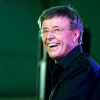
Gap Mangione
pianob.1938
AAJ: That's a shame that his insistence cost you that final year. Clearly, though, it hasn't hindered your career in any way.
JP: I had been around classical music my whole like. It was played at the house when I was a kid. I truly love and enjoy classical music. My teachers always saw how much passion I put into it and how much I got out of it. I can understand that by appearance it would seem that I would want to dedicate myself to classical music. But I couldn't do that. There is so much more to be appreciated.
AAJ: Well, instead of that fourth year of college you embarked on a different learning experience playing with a lot of cats in the L.A. area.
JP: A ton of people.

Victor Feldman
multi-instrumentalist1934 - 1987

Lenny Breau
guitar1941 - 1984

Joe Farrell
saxophone1937 - 1986

Freddie Hubbard
trumpet1938 - 2008
AAJ: Freddie Hubbard. Man, I loved the way he played.
JP: Me too, Jimmie. I didn't get to play with him all that much, but I'll never forget the way he played. What an improvisor. I was a big fan of his records, just like you, but playing with him was astounding. His level of time playing and his creativity, with that incredible sound and chops. I also played with

Dave Grusin
pianob.1934
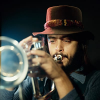
Chuck Mangione
flugelhorn1940 - 2025
AAJ: It served as an audition.
JP: The funny thing is that I had been trying to get an auction with Chick. I was also playing in Joe Farrell's band and I kept asking him when Chick was going to have auditions. He told me that Chick never really has auditions. So, anyways, Chick hears me play the acoustic bass at his house and then tells me to send him some of my electric playing. He was looking to start an electric band. I sent him some stuff, he listened to it, he told me on the phone that he liked it, but that was it. I figured that he didn't like it all that well because there was no mention of doing anything. Two or three weeks later I was taking a break in between takes at the studio. We had a very funny and sarcastic engineer named Wally Krantz. I'm in the lounge, and I hear him say over the intercom, "Patitucci, Chick Corea is on the phone." I said, "Yeah, that's funny Wally," as I hang up the phone—click. He does it again, and I still think he is messing with me, so I hang up the phone again. Third time, Wally says "You idiot, pick up the phone, it really is Chick Corea." What happened next is something that I will never forget for the rest of my life. I pick up the phone and Chick says, "Listen I know you have a lot going on and are playing with a lot of different people, but I was hoping you would consider joining my band."
AAJ: Wow, no considering needed for an opportunity of that magnitude.
JP: Oh man, I wanted to jump through the phone. It was an unbelievable moment in time.
AAJ: For sure, and of course you went on to play in Chick Corea's Elektric Band and his Akoustic band as well.
JP: Yes, and with all the challenges and mentorship that raised my playing to a whole new level. My very first gig with him was on the Merv Griffin show. Herbie Hancock played with us.

Tom Brechtlein
drums
Dave Weckl
drumsb.1960
AAJ: We suffered the loss of Chick Corea earlier this year. Having played with and known the man for many years, it would be wonderful if you could say a few words about Chick as a musician, a composer, a friend, a human being, in any manner you feel comfortable talking about him.
JP: Chick saw me in a way that maybe a lot of other people didn't. He gave me a lot of room to blow and play. He challenged me. His comping was so powerful that I felt like I was in the ring with Muhammed Ali. He played those sharp chords that forced me to become much more declarative rhythmically and when I played my ideas on solos. He believed in my compositions. He said that I should have my own band and be making records of my own. I asked how that was going to happen, as it didn't seem likely. He said not to worry and just like that he went out and got me a record deal. He believed in me. He produced that first record, John Patitucci (GRP, 1987), and taught me how to organize myself and to make records. All of a sudden I was making records every year. I was flying out

Michael Brecker
saxophone, tenor1949 - 2007

Bob Berg
saxophone1951 - 2002

Gary Novak
drumsAAJ: I had the pleasure of speaking with him just this past November. He couldn't possibly have been more genuine, down to earth, quick to laugh, and full of energy. He was very generous with his time and we spoke about a great many things. We talked quite a bit about his ability to make an audience relax and feel comfortable as if they were sitting in his living room. I've experienced that as an audience member, but you experienced it countless times from the stage. What effect did that vibe he created have on you and/or your bandmates? It no doubt created a heightened attentiveness from the crowd and consequently a richer listening experience.
JP: I would say that it was organic. My approach has always been to never let anything get in the way of playing my instrument. Chick, sometimes, would get annoyed by somebody falling asleep in the front row or someone just not digging it. He would find that one person in the entire audience and sometimes get frustrated with that. I have always refused to let that happen. We had a lot of eye contact on stage. We were digging it and having fun. Chick had the mindset that the audience was never wrong. That it was our job to pull them up and encourage them.
AAJ: Indeed, he said those very words to me. He, of course, goes down in history as one of the most prolific composers and musicians in history. Thanks for talking and giving us some insight about Chick Corea.
JP: Yes, well I will share one aspect of his songwriting process. He taught me to let the ideas flow. That once you have something creative going on, don't stop to analyze it. Just keep going and going for as long as that burst takes you. Then you can look back and make sense of it all. But let it all out before you begin to take perspective of it.
AAJ: That's interesting. It's easy to picture someone agonizing over the next note, perhaps overthinking, and getting stuck in the mud. The methodology you spoke of would seem to make a lot of sense. On the subject of songwriting, you recently created a song that evokes the memory of bassist

Paul Jackson
guitar1947 - 2021
JP: Yeah, yeah, I'm glad you brought that up. I didn't even realize that it was coming out today, but then my wife pointed it out and I was very happy about that.
AAJ: What's the back story as far as meeting him and what it is about his playing that resonated so much with you?
JP: Well the irony is that I never did meet him. Chris Poehler knew him very well and turned me on to him. Chris played acoustic and electric, and Paul played acoustic and electric as well. When Paul got on the electric something special happened. His jazz flexibility and freedom coupled with his chunky earthy blues and soul created this crazy improvisational funk. Paul was a co-founder of the

The Headhunters
band / ensemble / orchestrab.1973

Rocco Prestia
bass, electricb.1951

Tower of Power
band / ensemble / orchestrab.1968
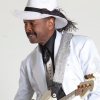
Larry Graham
bass, electric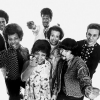
Sly and the Family Stone
band / ensemble / orchestraAAJ: How did this new song come about?
JP: You know, I honestly didn't even know that Paul was sick at the time. We were in a studio in Brooklyn and had a little bit of time left. It was suggested that I just play some kind of instrumental. So, it was natural for me to go into a Paul Jackson kind of thing. We just went into something that had a Herbie early seventies funk kind of vibe. Paul had a way of creating different grooves throughout the course of the song. I wasn't so sure I was really doing that all that well, but the other guys were really into it and playing really well. We listened back and were surprised, really, at how well it came out. It was a jam that I edited. I made it a little shorter, added a six string solo, and a little percussion. Chris Potter really knocked it out of the park, so we kind of made it a Potter tour de force. This was also with John Cowherd,

Marcus Gilmore
drumsb.1986
AAJ: That's kind of cool actually that the song was created organically and became a tribute in a natural way. There's a lot of heart and genuineness in the corresponding letter you wrote. Now picking back up to being in southern California when you were younger and only a few years out of college, you ultimately determined California wasn't your scene and moved back to New York. I'm sure there were other considerations, but you were quoted as saying that "you can't make snowmen in California."
JP: (laughing out loud) I really missed the seasons. Of course, sometimes you get tired of the snow. But we really love it here. Creatively its insane. If I was wealthy, I'd love to have a house in California as well. I have a lot of friends there and family too. My brother, Tom, still lives in northern California. I have a sister that lives in California. My oldest daughter is a singer songwriter, and lives in Los Angeles.
AAJ: Tell us about your daughter.
JP: She is very talented in a lot of different ways. She wrote a beautiful jazz ballad for vocalist

Andy James
vocals
Jim Morrison
vocals1943 - 1971
AAJ: Wow, how cool is that?
JP: Yeah, she's talented. She can go in a lot of different directions. She is in a film that I scored last year that is coming out in May. It's called Chicago: America's Hidden War(CineLife Entertainment, 2021). It's all about the gang violence, police corruption and abuse, government corruption, and the whole thing. I wrote the score and my daughter sings on parts of the score. She did a really great job on this project.
AAJ: Thanks for sharing that. What does she go by?
JP: Her name is Gracie, but she goes by Sachi Grei Sato. Sachi is my wife's first name and Sato is my mother-in-law's maiden name.
AAJ: You clarified oldest daughter. Is your younger daughter musically inclined as well?
JP She has a good voice, but right now she is concentrating on her education and getting her business degree in fashion from Tulane University.
AAJ: And your wife, Sachi, is a professional cellist, correct?
JP: Yes she's a cellist. She also received a professional certification from Berklee in film supervision. She actually did the music supervision on the film that I scored.
AAJ: You must have some fun and interesting jam sessions together at home. Do you play a lot of classical music, or will she occasionally surprise you with "Baba O' Riley?"
JP: (laughing) We do play together. Actually she has been on several of my records.
AAJ: That's great to have such a musical family. For many years you have been sharing the stage as part of Wayne Shorter's band. That's as far up the food chain as it goes in terms of playing with an icon. How long have you been connected with him, and just how amazing is it to play with such a master?
JP: Well, I started with Chick in 1985 and he introduces me to Wayne in 1986. In 1987 I played on his record Phantom Navigator (Columbia, 1987). I played with Chick until 1995. Since then I have toured and recorded a lot over the years with Wayne.
AAJ: Trying to get just a glimpse of Shorter's genius, I wanted to ask about the concept of introducing the music at zero gravity. This would seem to be a very interesting Shorter methodology. Perhaps you could expand a bit on how you and fellow quartet mates,

Danilo Pérez
pianob.1966
JP: His whole concept is that you want to blur the line between composition and improvisation. Wayne doesn't want the music to be predictable. He doesn't want people to know when we are improvising and when we are playing the written music. Anyone can cue into one of the pieces that we have in the book, and there is a lot of them. Sometimes we will improvise for forty-five minutes before playing a written composition. But people don't know that and will ask what the name of the first tune we played is (laughing). It's easy to think that because there are grooves and melodies. It's tonal. By design Wayne has given us that freedom. It's been the same quartet, with the guys you mentioned, Brian and Danilo, for about twenty years now. So there is a broad chemistry whether we are improvising or interpreting the written note. Wayne is amazing. He will write this masterpiece of orchestration that we read through and then he will say something like, "let's just play page seven and eight." We will be thinking how could you leave all this out. But Wayne has a very light touch on what he writes, even those it's genius.
AAJ: In the documentary, you mentioned Shorter often referring to "the mission" when you go out to play a gig? What can you tell us about the mission?
JP: Wayne wants us all to play music like the way we want the world to be.
AAJ: Wow, that's a statement with some weight behind it.
JP: Yeah, he'll say, "Let's go make a movie" and want to take people on a visual journey. He wants people to dream, feel things, reach for things, and feel inspired. Wayne is interested in uplifting people. It's more about touching someone emotionally and making them cry, then it is about impressing them. You know what I mean?
Tags
SoCal Jazz
John Patitucci
Jim Worsley
United States
New York
New York City
Adam Cruz
David Perelas
Adam Rogers
Bud Powell
Chris Potter
John Cowherd
Nate Smith
The Meters
Miles Davis
Steve Cardenas
Jimi Hendrix
Earl "Fatha" Hines
Eubie Blake
Wes Montgomery
Art Blakey
Ron Carter
oscar peterson
Ray Brown
Sam Jones
John Entwistle
John Paul Jones
The Who
Led Zeppelin
jeff beck
Cream
Humble Pie
Paul McCartney
James Jamerson
Willie Weeks
Donny Hathaway
Chuck Rainey
Stevie Wonder
Chet Baker
Jay Anderson
Woody Herman
Gap Mangione
Victor Feldman
Lenny Breau
Joe Farrell
Freddie Hubbard
Dave Grusin
Chuck Mangione
Gayle Moran
Tom Brechtlein
Dave Weckl
Michael Brecker
Bob Berg
Gary Novak
Paul Jackson
the headhunters
Rocco Prestia
Larry Graham
Sly and The Family Stone
Graham Central Station
Marcus Gilmore
Andy James
Jim Morrison
Wayne Shorter
Danilo Perez
Bill Cunliffe
John Beasley
Comments
PREVIOUS / NEXT
Support All About Jazz
 All About Jazz has been a pillar of jazz since 1995, championing it as an art form and, more importantly, supporting the musicians who make it. Our enduring commitment has made "AAJ" one of the most culturally important websites of its kind, read by hundreds of thousands of fans, musicians and industry figures every month.
All About Jazz has been a pillar of jazz since 1995, championing it as an art form and, more importantly, supporting the musicians who make it. Our enduring commitment has made "AAJ" one of the most culturally important websites of its kind, read by hundreds of thousands of fans, musicians and industry figures every month.
Go Ad Free!
To maintain our platform while developing new means to foster jazz discovery and connectivity, we need your help. You can become a sustaining member for as little as $20 and in return, we'll immediately hide those pesky ads plus provide access to future articles for a full year. This winning combination vastly improves your AAJ experience and allow us to vigorously build on the pioneering work we first started in 1995. So enjoy an ad-free AAJ experience and help us remain a positive beacon for jazz by making a donation today.

New York City
Concert Guide | Venue Guide | Local Businesses
| More...





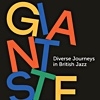



 Buy Now
Buy Now




